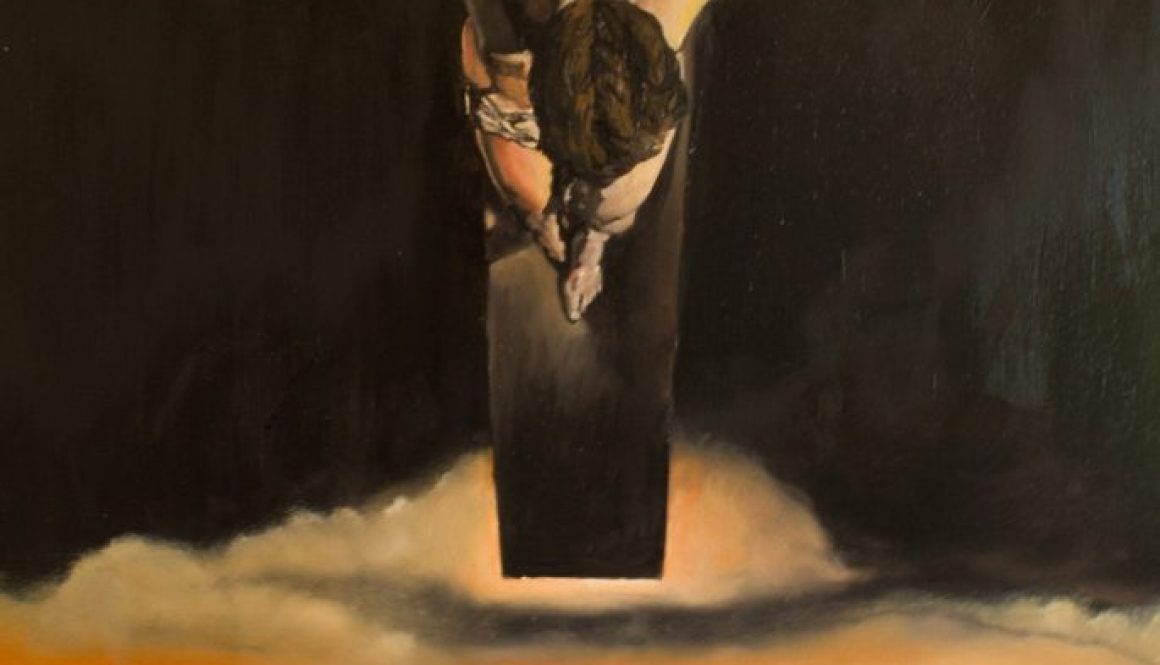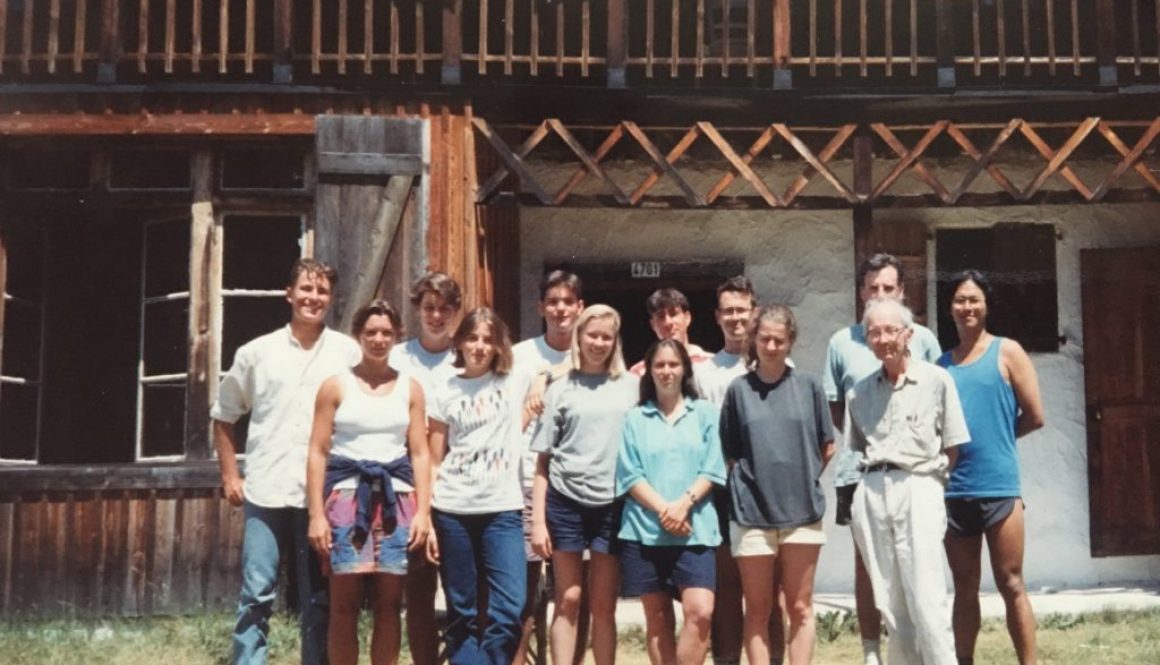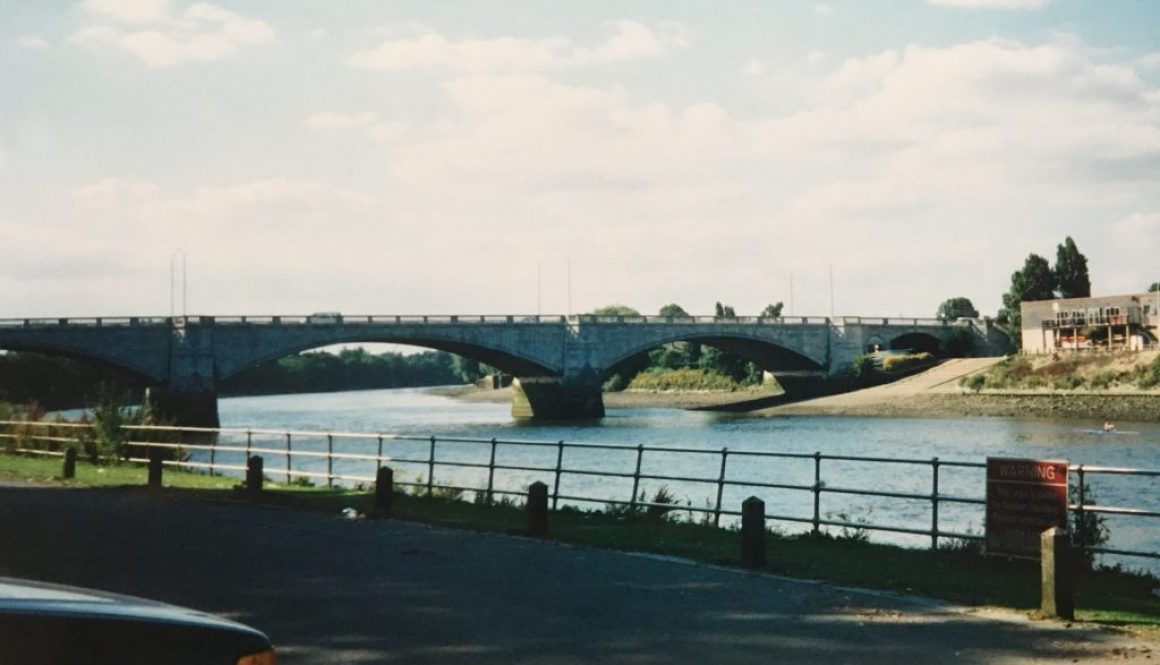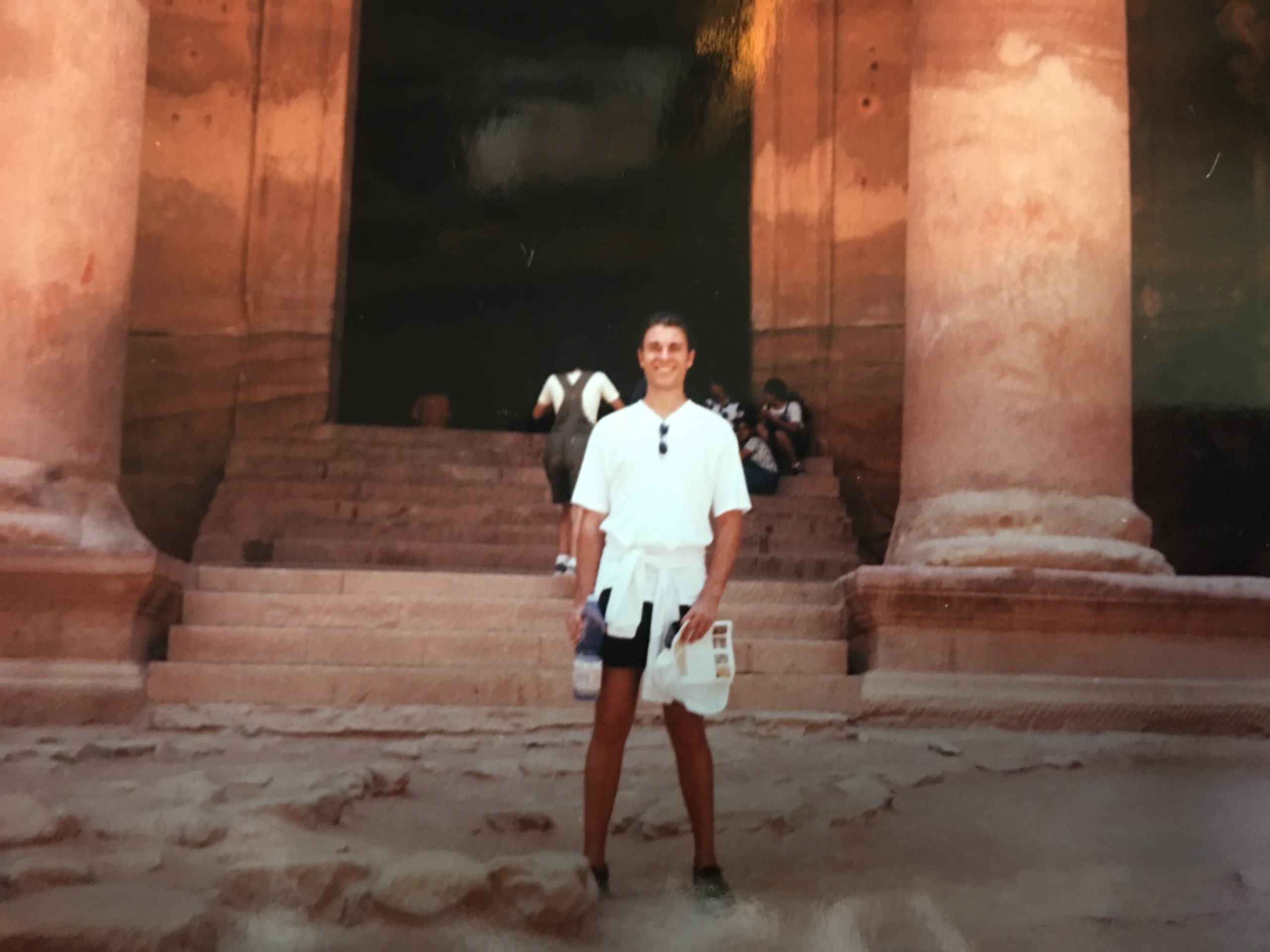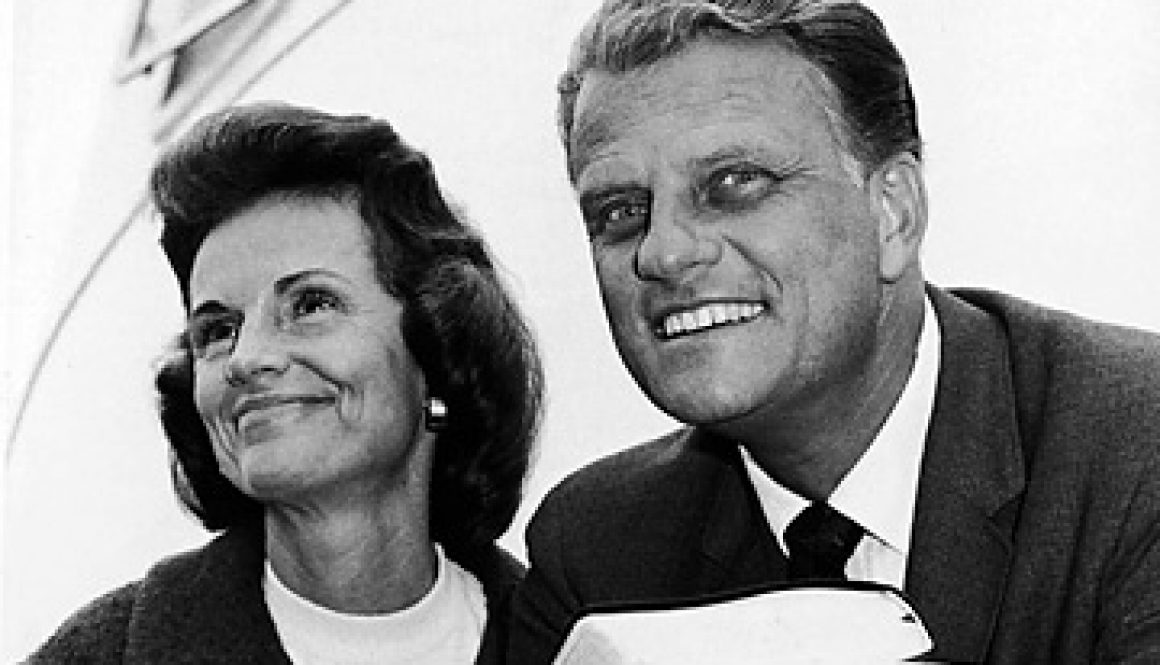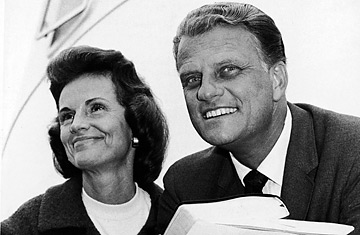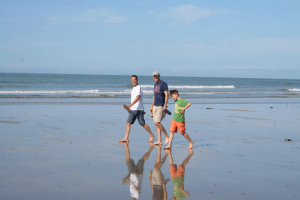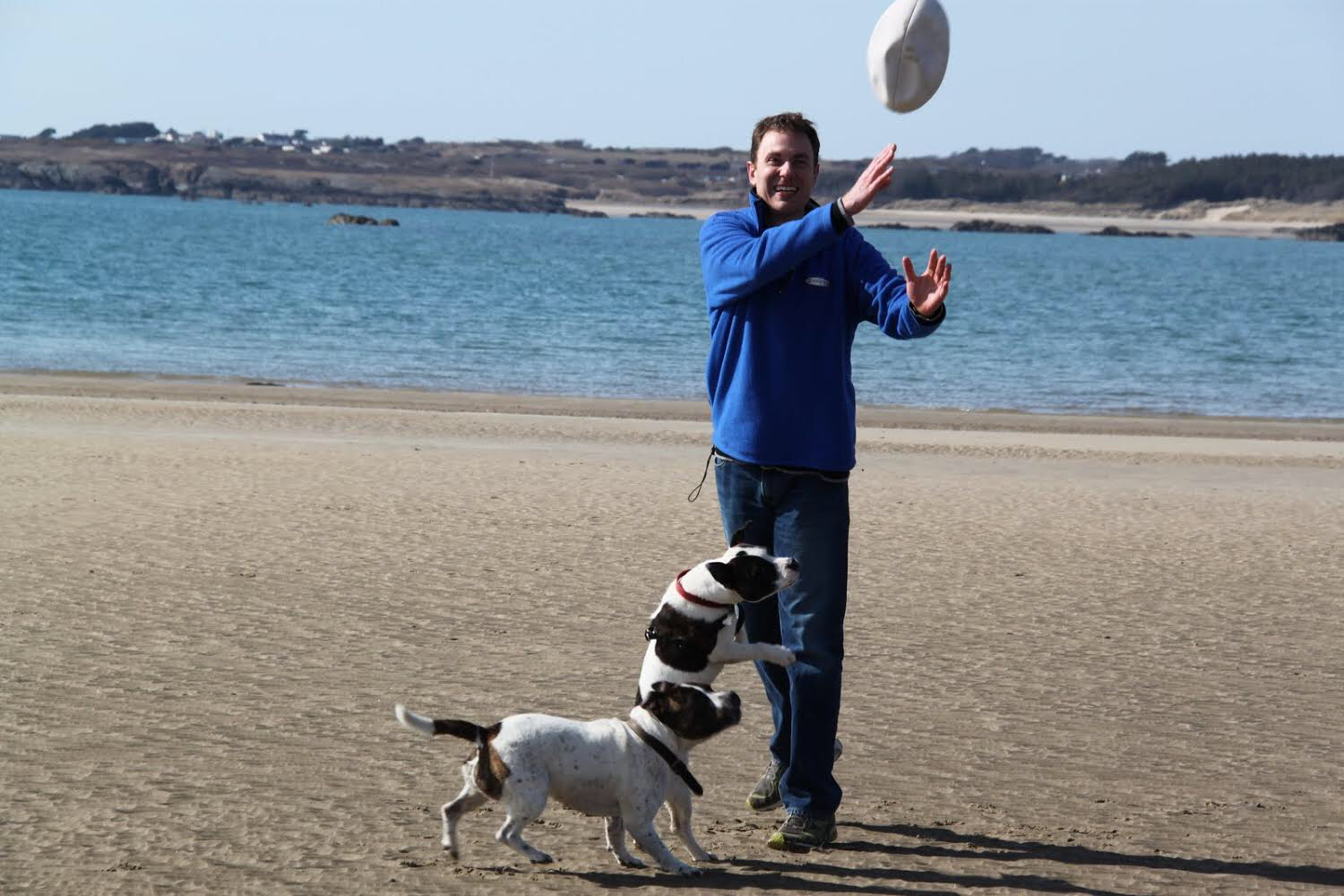I’ve spent a lot of the week thinking about the Cross. Reading Matthew’s gospel account and pondering it. I’ve watched on DVD that film The Passion of Christ. And in all my reflections I’ve been lost for words.
Firstly, lost in the sheer awful reality of it. (I don’t mean lost in the sense of being mystified and how it could have happened. That distancing response we use as we watch the news: as ‘how could something so awful happen?’ We see in the crucifixion of Jesus something here all too familiar about what we are like.) I mean lost in the reality of it and my place within it. The way that all human attempts – all my attempts – to be in control, in charge, all claims to do things my way, end up here. In nailing an utterly and totally righteous man to a cross.
To see what is happening on the Cross is to be rendered utterly silent, lost. All our pretensions to be ‘sorted’, in control – all the ways we try an construct meaningful lives for ourselves in our own strength and power – laid bare. Exposed for what they really are. Isaac Watts begins his great hymn in that place too:
When I survey the wondrous Cross on which the Prince of glory died. My richest gain I count but loss, and pour contempt on all my pride
There is no avoiding this revelation of the utter futility of human claims to do it ‘my way’. The utter lostness of humanity. But to fully see what is happening on the Cross is not to be left there. In fact, to want to stay there – weeping at our iniquity – is to risk a kind of self-indulgence. It is to try and find a way back through our own horror and remorse at what happened. The kind of approach to sin which says: ‘Lord, I hate myself for what I did. And because I am so sorry, it will never happen again’. The Cross is an end to sin. But NOT because the world was shocked at itself, and turned over a new leaf.
Rather, because there isn’t a way back from here. This is the final judgement of sin and of this world. It is the final whistle. On the Cross Jesus shows us where all sin leads. We are rightly totally lost in the face of it. Rendered silent and powerless by the reality of it.
But because it is an end – it is also, by the grace of God, a new beginning. Jesus breaks the silence with his words from the Cross that reveal he is making a way to a new world. In Matthew chapter 27, we see everyone is involved with Jesus’ crucifixion: Judas, the chief priests, Pilate, the crowd baying for blood, the soldiers, the passers by who mock Jesus as he hangs on the cross. We see the range of human failings: pride, fear, selfishness, unbelief. The lostness of our world. The futility of sin.
But then, in verse 45, all of these voices fade into the background. And God is at the centre. He always has been, but now we truly see. The story of the crucifixion which everyone thought they were in control of is revealed to be the story of the Crucified. And what we see now in the Cross leaves us lost… but this time, in wonder.
The universe turns on this moment. Everything else fades into the background. Darkness comes over the land in the middle of the afternoon. And Jesus cries out ‘Eloi Eloi lama sabachthani?’ ‘My God, my God, why have you forsaken me?’
Like all cries of lament, this is a cry of faith: “My God”. This is utterly different from the fear and unbelief that has put Jesus there. Jesus is bearing for us God’s wrath for the entirety of sin – for all the world, for all of history.
‘Come down’, the bystanders say, ‘and we will believe’. But it is precisely because He does not come down that He is Our Saviour. Jesus will not prove to the onlookers who he is by a show of force. He is not interested in self-justification. Self-centred power. He has come, not to prove himself. But to be our Saviour. I find myself lost in wonder that Jesus is there, willingly, lovingly, for my sins. He won’t be moved from that place. Whatever it takes to make a way for me, for you. He remains with me even unto death, that I may have a new beginning.
Lost in wonder at the foot of the Cross is the place where we find bearings for everything else. A whole new way of seeing the world and what life is all about. A new beginning in which we believe not because of might but because of love. A new humanity built upon self-giving love.And what Jesus accomplishes on the Cross is something far beyond anything we could have imagined. He makes a way for us to be one with God for ever.
The atoning power of the Cross of Jesus Christ. At-one-ment. Through Jesus we are one with God. In verse 51 we read that the curtain in the temple separating the people from God’s presence – the Holy of Holies where only the High Priest could go once a year – is torn in two from top to bottom. Heaven to earth.
One sacrifice once and for all. No mediators now. God has become one with us. So that, through his death and resurrection, we might become one with him. (“The unassumed is the unhealed” Gregory Nazianzen c.380AD)
Creation itself – the physical and natural world – is the first to respond (v51b). Then the Centurion speaks the words that Matthew hopes that his readers will echo and know to be true: “Surely he was the Son of God”. Words that are established for all eternity in Jesus’ Resurrection on Easter morning.
And what is our response? As we stand in the place of the centurion at the foot of the Cross. Isaac Watts ends that hymn with his response.
“Love so amazing, so divine,
Demands my soul, my life, my all.”
Archbishop William Temple used to say that we should freely sing that final line with everything we’ve got, or freely stay silent. Because only you can sing them and mean them. No one can (or should even attempt to) compel you to sing those words. The Cross – Jesus’ love for us – does not demand anything in the sense of forcing us to say or do anything. “While we were yet sinners Christ died for us” (Romans 5:8)
That is one of the most breathtaking things as we look at the Cross. Jesus died for me, accepted my sin on his shoulders. Before I had even accepted him. Before I had asked for his help, he loved me unto death anyway. That’s the grace of God. His faithfulness and compassion. His infinite love. Jesus died knowing that some would respond, others wouldn’t. But he died for us all… anyway.
That love, God’s kind of love, is what inspired Mother Teresa to write her famous poem ‘Anyway’:
“People are often unreasonable, illogical, and self-centred;
Forgive them anyway.
If you are kind, people may accuse you of selfish, ulterior motives;
Be kind anyway.
If you are successful, you will win some false friends and some true enemies;
Succeed anyway.
If you are honest and frank, people may cheat you;
Be honest and frank anyway.
What you spend years building, someone could destroy overnight;
Build anyway.
If you find serenity and happiness, they may be jealous;
Be happy anyway.
The good you do today, people will often forget tomorrow;
Do good anyway.
Give the world the best you have, and it may never be enough;
Give the world the best you’ve got anyway.
You see, in the final analysis, it is between you and God;
It was never between you and them anyway.”
For God, Love is the only way. Love is who He is. And so, as well as seeing in the Cross, how much Jesus loves us. We also see how much he loves the Father. ‘In the final analysis’, to use Mother Theresa’s words, it is between Jesus and his Father. About Who God is. Jesus’ love for us and his love for the Father go hand in hand.
- His prayer on the Cross: “Father forgive them, they don’t know what they are doing’. ‘It’s not about me, its all about them’.
- His prayer in the Garden: “Yet not my will Father, but Yours be done”. ‘It’s not about me, its all about You.’
This nature of God, his way of love, is at the heart of Paul’s hymn in Philippians chapter 2. He writes: “Your attitude should be the same as that of Christ Jesus:”
“Who, being in very nature God, did not consider equality with God something to be used to his own advantage; rather, he made himself nothing by taking the very nature of a servant … he humbled himself by becoming obedient to death – even death on a cross!”
Those verses sum up what Paul calls the ‘mind of Christ Jesus’. And it is one of self-giving love in total freedom. ‘It’s not about me, its all about Him’. Jesus says it of the Father. He is obedient even to death on the Cross. And the Father says it of the Son: “Therefore God exalted him to the highest place and gave him the name that is above every name, that at the name of Jesus every knee should bow, in heaven and on earth and under the earth, and every tongue acknowledge that Jesus Christ is Lord, to the glory of God the Father.”
The Cross is our way to salvation. But it also a glimpse of God’s glory. It is also about who God is…anyway. Love personified. God became human for us, because he is love. He died for us, because he is love. And He did that for all of us, because He is love. He did it whilst we were sinners. He wanted to do it even if we would not accept it, because he is love. Love is Who he is. His way.
And this is the key to the freedom we find at the foot of the Cross. The choice we face as we stand at the foot of the Cross is one of freedom. We are not coerced into anything. We are not shamed into loving God. He IS love. And because of his love we are free. Paul writes to the Galatians: “It was for freedom that Christ has set us free”.
Stay at the foot of the Cross until you know that. Don’t take up your Cross without first seeing God’s love. His total acceptance of you, as you are, on the Cross. Jesus did not have to die for us. He chose to. The Cross is an expression of who God is. Who you are in Jesus is the beginning and the end of the story. You have to do nothing for God other than receive his grace by faith.
The objections to the language of sacrifice always come from a mistaken belief that sacrifice is necessarily imposed. Something one doesn’t do freely. ‘Who would freely sacrifice themselves for another?’ our modern culture asks. The answer in the Gospel comes back, ‘One who loves unconditionally, whose self is utterly secure in that same love’.
If we follow Jesus in this way of love, we don’t find that our problems disappear, but we find a God “whom to serve is perfect freedom” (Book of Common Prayer). Jesus said, “If anyone would come after me, he must deny himself and take up his cross and follow me. For whoever wants to save his life will lose it, but whoever loses his life for me will find it”.
To anyone afraid of those words – and I do not want to minimise the cost of discipleship – please see the logic of love in this following of Jesus: Love so amazing so divine, Demands my soul, my life, my all. It is love that compels us (2 Cor 5:14). Nothing else could (or ever should). We do not “take up our cross “, give “my soul, my life, my all”, in order to be loved by God. His love is unconditional. He died for us while we were still sinners. He did it freely because he loves us. He died so that we can be utterly free to accept it or not. Only when one is in a relationship of unconditional love can one make sense of phrases like “love compels” or “love so amazing so divine demands“. Ask any parent who loves their son or daughter if it feels like a choice and they will tell you that it is much deeper – it is part of them. We do not respond to the cross of Jesus in order to win a higher place in God’s eyes. But simply because of who we have found in Jesus. Love personified. Mother Teresa said of her missions: “Our vocation is not the work… [our work is just] our means to put love into action”.
Our vocation is love. To simply share in the life, the way of, God. Love so amazing so divine. Demands my soul, my life, my all. We are “Jolly Beggars” as CS Lewis put it. We stand at the foot of the Cross knowing we can say nothing, other than ‘Thank you. Praise You’. And we discover that in our total dependence upon God in this place, we find the life of Christ. His way of love.

